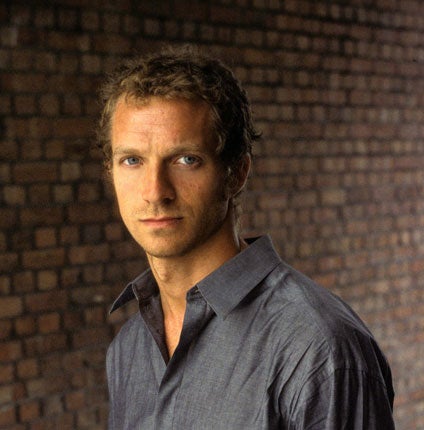Agent 6, By Tom Rob Smith
The ex-MGB hero of Tom Rob Smith's historical thrillers gets to travel ever further afield, but will he be able to outrun his past?

Your support helps us to tell the story
From reproductive rights to climate change to Big Tech, The Independent is on the ground when the story is developing. Whether it's investigating the financials of Elon Musk's pro-Trump PAC or producing our latest documentary, 'The A Word', which shines a light on the American women fighting for reproductive rights, we know how important it is to parse out the facts from the messaging.
At such a critical moment in US history, we need reporters on the ground. Your donation allows us to keep sending journalists to speak to both sides of the story.
The Independent is trusted by Americans across the entire political spectrum. And unlike many other quality news outlets, we choose not to lock Americans out of our reporting and analysis with paywalls. We believe quality journalism should be available to everyone, paid for by those who can afford it.
Your support makes all the difference.Even by the standards of Soviet citizenry, Leo Demidov is a very unlucky fellow.
The protagonist of Tom Rob Smith's trio of Russian thrillers, a model secret policeman who belatedly located his moral compass, was born a starving peasant in the 1930s. As if that wasn't tough enough, he has latterly endured the Gulag and the Lubyanka, and been declared an enemy of the state on more than one occasion. In Child 44, Smith's debut, Leo's long-lost brother turned out to be a serial killer. In The Secret Speech, his adopted daughter took up with an underworld gang, forcing him to pursue her to civil war-torn Budapest.
I hesitate to describe Leo as a hero, because his many misfortunes are a kind of karmic retribution, visited upon him as punishment for the awful deeds of his MGB past, when he believed he was doing the dirty work of a fundamentally benevolent state. Now disillusioned and ashamed of his former self, he not only has to live with his guilt, but is also constantly reminded of it by vengeful figures from his former life. The villain of The Secret Speech turned out to be one of his arrestees, transformed by years of Siberian exile into a criminal mastermind.
Suffice to say that by the start of the final part of the trilogy, Agent 6, Leo's luck has only fleetingly improved. The Demidov family is living quietly, almost contentedly, in 1960s Moscow. But when Leo's wife and daughters are sent to New York on a "peace tour" without him, his paranoia proves to be prescient.
This is the first time that Smith has taken us beyond the Soviet Empire, where we learn that the West suffers its own dangers and discontents (not least among the African-American community), and has its own morally corruptible secret police force. Americans have as much reason to fear their masters as they do their Cold War rivals.
The novel's inciting incident – the one which, as the book blurb says, "tears Leo's family apart" – occurs almost at its mid point, and it would be unfair to reveal it here. But notwithstanding a lengthy prologue in which he first meets his beloved wife Raisa, Leo is largely absent from the opening half of the book – and frankly, I rather yearned for the return of Smith's conflicted, compelling anti-hero.
Agent 6 is geographically and chronologically more expansive than either Child 44 or The Secret Speech. After visiting an America in the grip of civil rights unrest, we skip forward from the mid-century to the early Eighties, when the USSR is embroiling itself in a war in Afghanistan that will contribute to its eventual demise. It's here, in Kabul, that we find Leo again, working as a disinterested adviser to the Soviet occupying forces. He wisely predicts the problems that Afghanistan will pose for the Russians, and for their Western usurpers. Yet both he and the author are waylaid from solving the book's central mystery; and when that resolution does finally arrive, it seems to do so as much by luck as by design.
The brilliance of Child 44 and The Secret Speech lay in Smith's ability to hitch both Soviet history lesson and convincing character study to an express-train plot. Here, the express train takes until page 250 to leave the station, then makes a number of unscheduled stops on its Cold War mystery tour. The history lesson and the character study remain intact. But the narrative, save for a few short bursts of action, is languid by comparison with its predecessors.
Child 44 was sufficiently ambitious to earn a place on the Booker Prize longlist (a rare honour for a thriller) and sufficiently gripping to have its film rights snapped up by Ridley Scott – though the thorny subject of child murder may prove a harder sell for Hollywood than it is for book publishers. For those who were engrossed by the first two novels in the trilogy, Agent 6 provides a moving, melancholy conclusion, if not always a thrilling one. It will certainly be interesting to see where Smith turns next, and without Leo Demidov to accompany him.
To order any of these books at a reduced price, including free UK p&p, call Independent Books Direct on 0843 0600 030 or visit independentbooksdirect.co.uk
Join our commenting forum
Join thought-provoking conversations, follow other Independent readers and see their replies
Comments